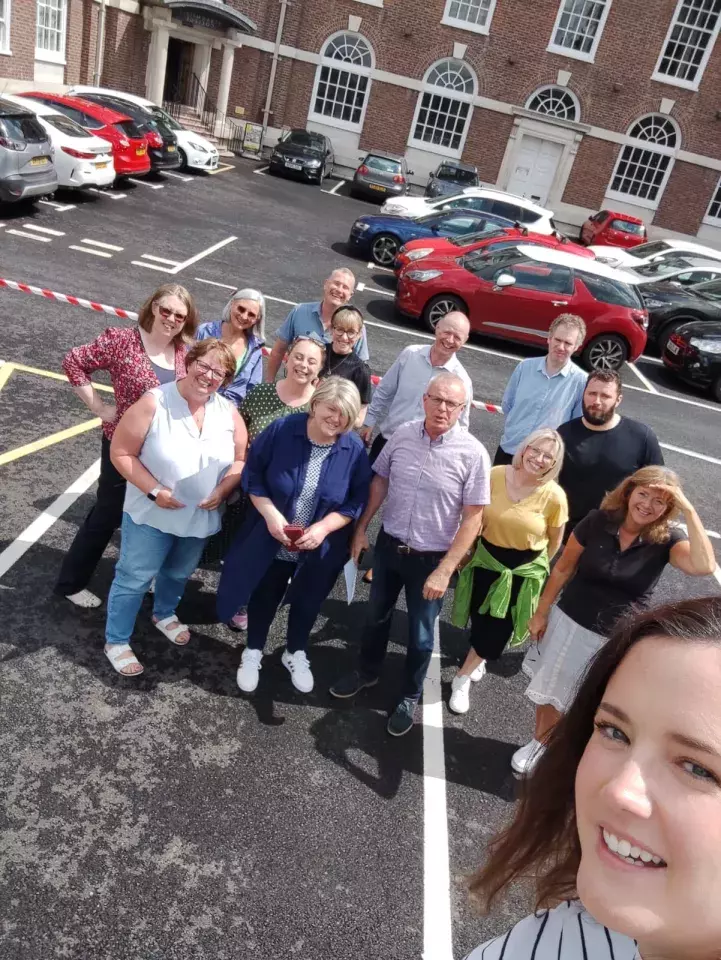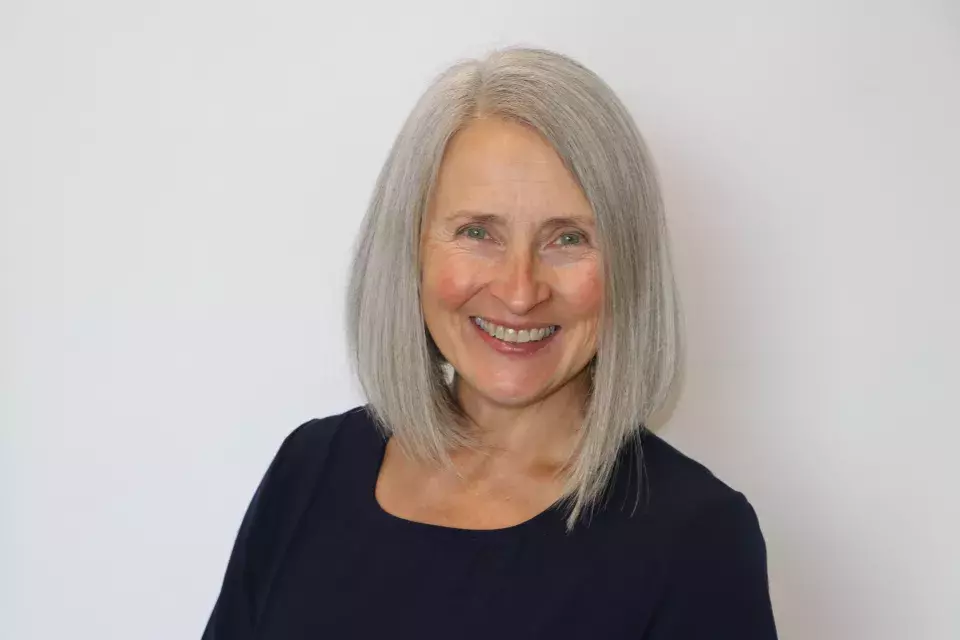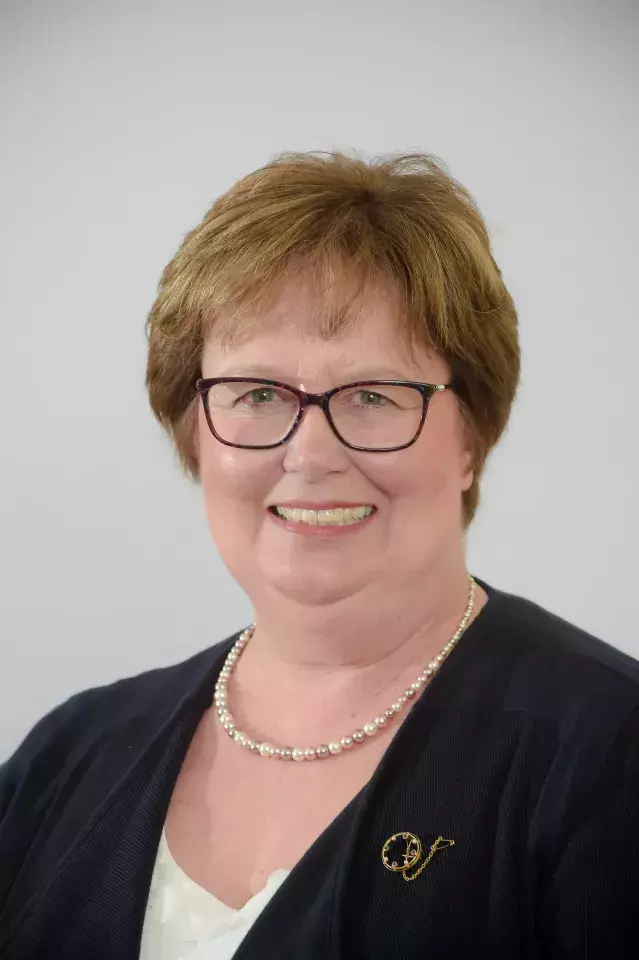Read Jayne's Q&A depicting her career journey which lead Jayne to become CSSC's Head of Education Support.
Tell us about your career and what has led you to your current post as Head of Education Support at the Controlled Schools’ Support Council (CSSC)
After graduating from Stranmillis College, I was delighted to be offered my first teaching post in Strandtown Primary School. During my time there I was seconded to Stranmillis for a term to lecture in the Physical Education Department and support students on school experience. After 11 years of experience, teaching both in Key Stage 1 and Key Stage 2, I was appointed as Vice Principal in Orangefield Primary School. In 2002 I was appointed to the North Eastern Education and Library Board (NEELB) where I initially held the post of Primary Officer with responsibility for nursery and primary provision. I was appointed as an Assistant Senior Education Officer for Children and Young People's Services in 2011 and this post transferred to the Education Authority in 2015.
When did you take up this position?
I took up my current post as Head of Education Support with the Controlled Schools’ Support Council in October 2016. It was a bit strange to apply for a post in an organisation that didn’t exist and having worked in a very safe employment environment throughout my career, it was a significant leap of faith to leave this security to work for a new organisation. Having been a pupil in controlled schools, a teacher in the sector and later through my work within the NEELB, I believed that having an advocacy body to represent the interests of controlled schools was really important. Working as a member of the Senior Management Team (SMT) of CSSC from the outset, helping to shape the organisation and having responsibility for the development of the education department was a tremendous opportunity.
What does your job role entail? (What does a typical day / week look like?)
As a member of the Senior Management Team I work closely with the Chief Executive and SMT colleagues reporting monthly to Council and bi-monthly to the Education and Research Committee on the work of the Education Department. I highly value the support of our Council members. They are representative of all the key stakeholders within the sector and extremely committed to their roles. They both support and challenge officers, guiding the work we do with wisdom and a vast collective experience. This is both encouraging and motivating for the staff team.
I lead and manage a team of five Schools' Support Officers providing support across the six corporate aims of the organisation. There is no typical day or week! My plans for the day are often displaced as issues arise and my priority is to enable the team to be highly effective in their roles. Having had the privilege of recruiting the education team, I was in the enviable position of selecting staff with individual strengths and expertise that complement my own and colleagues who share the same core values and commitment to the vision of the organisation. A significant amount of my time is devoted to area planning, a key function of the organisation. All Schools' Support Officers are involved in area planning and it is a huge privilege to represent the sector in this work. The establishment of CSSC has meant that for the first time controlled schools have an advocate speaking on their behalf and representing their interests.
How will the increase of Schools' Support Officers from four to five impact on the work with controlled schools?
Feedback has confirmed that schools value the Schools' Support Officer role. I was delighted to welcome Derek Harkness and Andrew Brown, Schools' Support Officers, to the team this year as they bring additional skills and experience to the organisation, further extending the vast knowledge and expertise of the team. From September 2019, the increase to five Schools' Support Officers gave me the opportunity to reorganise the deployment of officers to support individual schools, enhancing efficiencies within the CSSC support model and more closely aligning support with the EA locality model. Each Schools' Support Officer has approximately 110 schools, which is still demanding, but the geographical areas which they cover have been reduced to enable officers to build strong professional relationships with schools and develop their knowledge of the unique context of individual schools.
Obviously you enjoy every element of your role. However, is there a certain aspect of your job that you find particularly rewarding?
I love it when I receive feedback from schools which demonstrates the impact that the support from CSSC is having. Principals and Governors clearly have a high respect for the officers and their dedication, reliability and determination to help in finding solutions or in providing reassurance on a course of action.
It has been very rewarding over the last three years to watch the team develop and grow in their roles. Jill Brown, Schools' Support Officer has led two successful applications for Erasmus+ funding which has resulted in the successful implementation of a strategic European partnership involving collaboration with Ireland, Scotland, Denmark and Finland. In November 2019 I had the privilege of accompanying 18 senior leaders from controlled schools on an Erasmus+ Mobility to Finland and Estonia to explore practice in these two high performing countries.
Recently we had the launch of the CSSC Ethos self-evaluation toolkit. This was the result of three years’ work in partnership with controlled schools which Heather McKenzie, Schools' Support Officer, has led.
Tracey Woods, Schools' Support Officer, is currently implementing the second sign language programme in primary schools. Following the success of last years’ programme 2019/20 has seen an enhanced programme including professional development for teaching and non-teaching staff as a result of successful applications for grants from the Department of Communities.
Derek Harkness and Andrew Brown, Schools' Support Officers, have brought additional leadership expertise to the team and have experience in coaching and mentoring Principals. I am looking forward to supporting the development of their roles within the team.
What are the challenges in Education Support?
Schools are facing unprecedented challenges in a number of ways. School budgets are under severe pressure, there are increasing numbers of pupils presenting with special educational needs and many with greater complexity of need. We have some ‘state of the art’ school buildings; many schools, however, require significant investment to make them fit for purpose and to provide the high quality learning environment that all pupils in controlled schools should have. CSSC cannot on its own resolve these issues; we are, however, committed to working in partnership with DE, EA and other stakeholders to ensure education is sufficiently resourced to enable schools to continue to provide high quality education for our children and young people.
What was the best piece of advice given to you?
Working in education is one of the most influential careers you can embark on and for me has been rewarding, challenging at times but enormously enjoyable. Relationships are at the heart of what we do as teachers and that has remained a priority for me in my roles within educational administration and in my current post. Two pieces of advice have greatly influenced me, firstly, to stay true to your values and secondly, not to rush into decisions but to take time to reflect to ensure that your decision achieves the right outcome.







